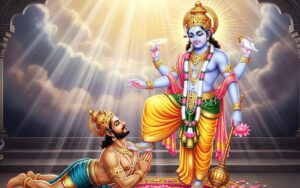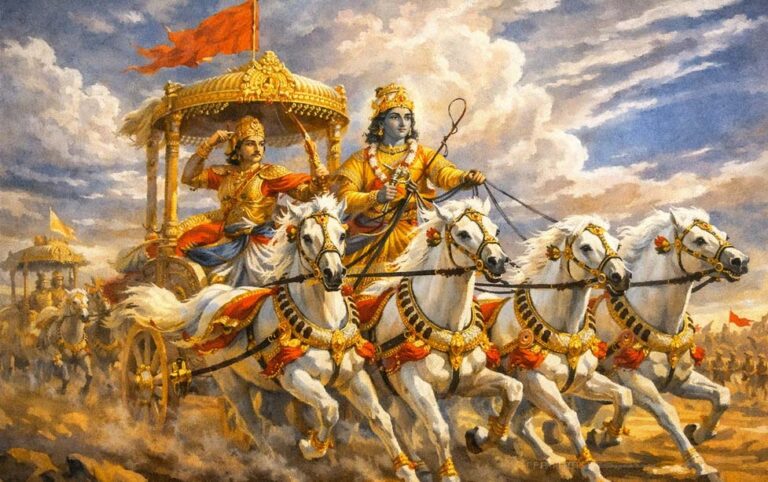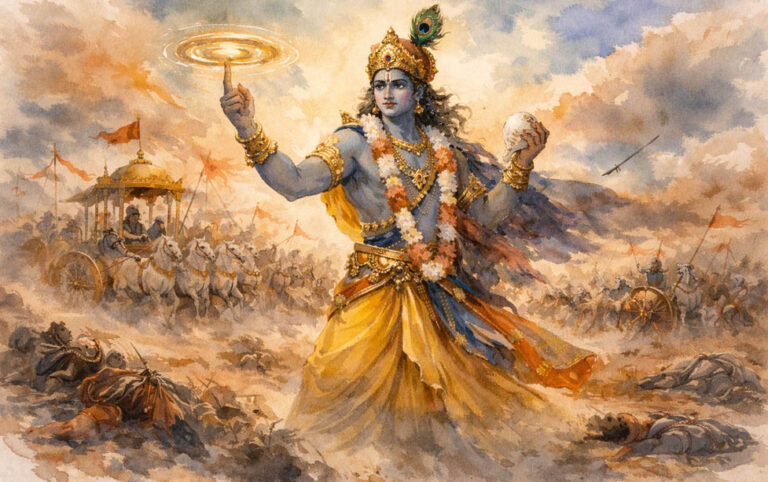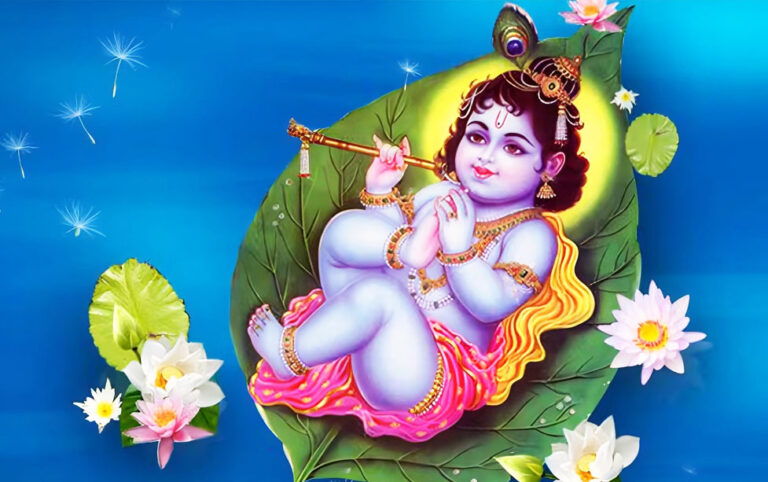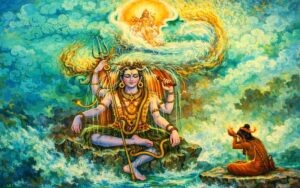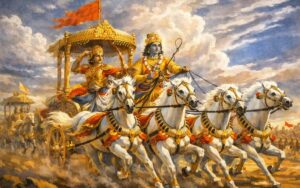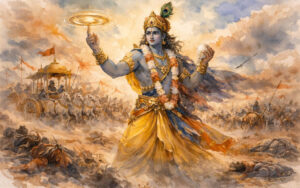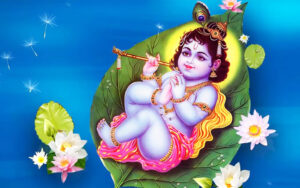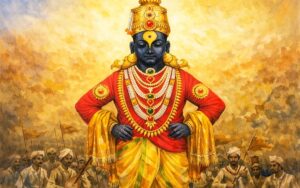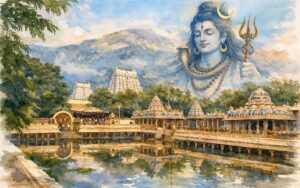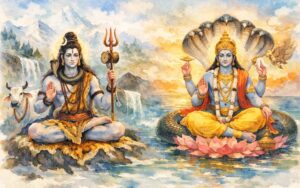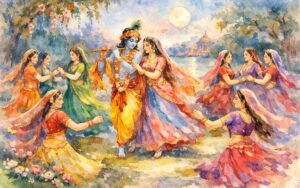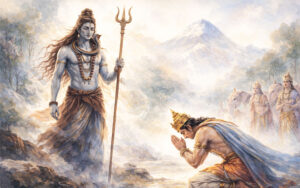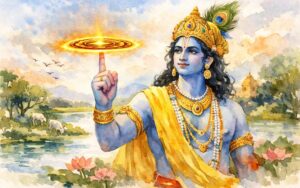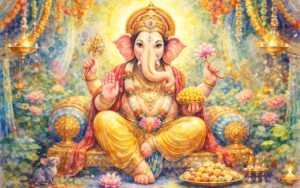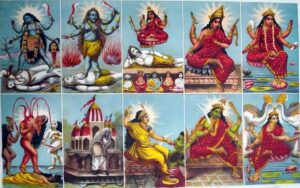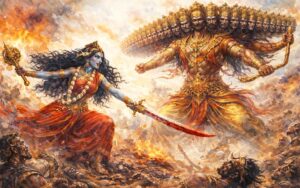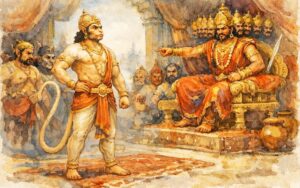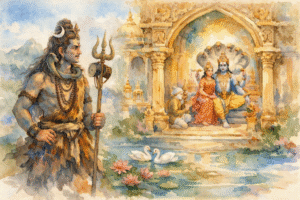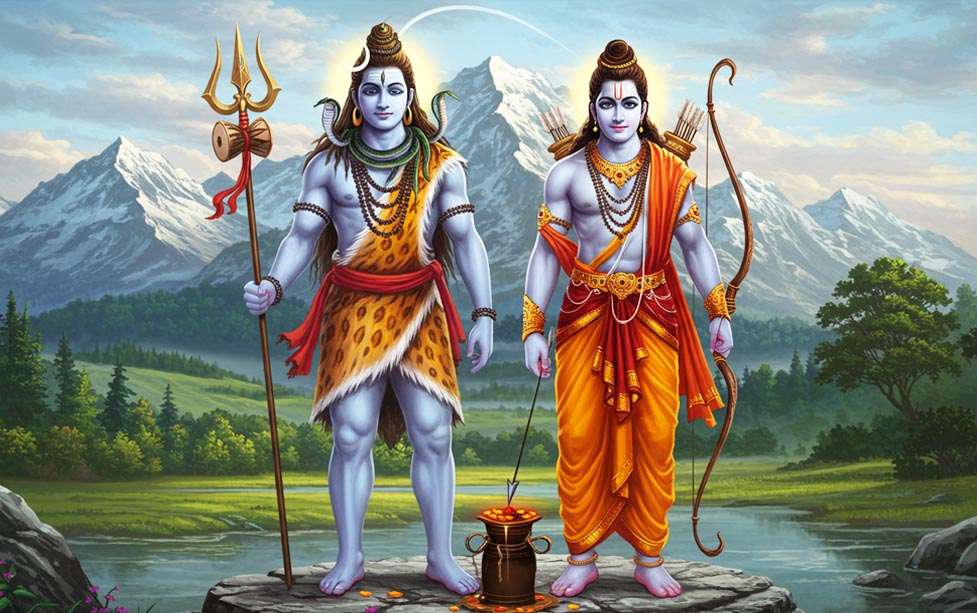
No time for reading the story? Give it a listen on Spotify.

Parvati sees Shiva chanting Rama’s name and wonders why — until he shows her the deep power behind it.
Characters in the story:
Lord Shiva: Lord Shiva, a major deity in Hinduism, is revered as the destroyer of evil and the force of cosmic change. He is depicted as a meditative ascetic or a divine dancer, characterized by his third eye, a serpent around his neck, and a trident in his hand.
![]()
Lord Rama: Lord Rama is one of the most revered deities in Hinduism and is the seventh avatar of Lord Vishnu. He is known for his virtues of righteousness, courage, and devotion, and is considered a symbol of ideal human behavior and the victory of good over evil.
![]()
Goddess Parvati: Goddess Parvati is a prominent deity in Hinduism, known as the divine mother and the consort of Lord Shiva. She represents feminine power, fertility, love, and devotion, and is worshiped for her nurturing and compassionate nature.
Once, in the divine serenity of Mount Kailash, Parvati noticed something curious. Her consort, the great Shiva — destroyer of worlds, master of time, embodiment of yogic stillness — was softly chanting a name over and over.
“Rama… Rama… Rama…”
The sound was sweet, rhythmic, and filled the air with an odd tranquility. But Parvati was puzzled.
“Mahadeva,” she asked one day, her voice laced with curiosity, “you are the Supreme Being, the Mahakaal. Why do you repeatedly chant the name Rama, a mortal prince, an avatar of Vishnu? Should it not be Vishnu who chants your name?”
Shiva smiled, eyes still closed. “You see a prince, beloved. I see eternal Dharma wrapped in humility. I chant the name of Rama not because I must — but because it is pure, and chanting it liberates even me.”
Parvati was intrigued but unconvinced. “Then show me,” she said. “Show me this truth you see.”
Shiva gently nodded.
He led her to the sacred city of Kashi, a place where the line between life and death thins — where the Ganga flows not just with water, but with centuries of prayers, farewells, and release.
As they walked through the narrow lanes, time itself seemed to slow. The scent of sandalwood and burning ghee mingled with the distant toll of temple bells. They reached a humble hut by the ghats, where an old man lay breathing his last.
His family had gathered, whispering prayers through trembling lips. His skin was pale, his chest rising in shallow intervals. Fear lingered in the corners of his fading eyes — the fear of the unknown.
And then, from the shadows, stepped Shiva.
Not as the fierce Rudra, but as a gentle ascetic — ash smeared on his skin, matted locks flowing, the crescent moon glowing softly on his brow. Parvati stood beside him, silent, watching.
Shiva approached the dying man and knelt by his side. He leaned forward — so close that only the man’s soul could hear.
And in a voice that was eternal, he whispered:
“Rama…”
In that instant, the old man’s breath halted — but not in agony.
His face, once etched with pain, softened into a serene smile. His soul stirred, then gently rose — like a bird unchained, like a lotus blooming toward the sky. It rose above the bed, above the hut, above the bindings of karma and fear.
Unbound.
Unburdened.
Liberated.
Parvati stood frozen. Not a single Vedic hymn had been recited. No ritual fire had been lit. No elaborate ceremony had taken place.
Just a name: Rama.
She turned to Shiva, eyes wide with wonder.
And he spoke with the quiet certainty of one who knows the rhythm of creation and destruction:
“This is the Taraka Mantra — the Boatman’s Call. Just as a boatman ferries souls across a raging river, this name carries them across the ocean of birth and death. That is why I chant it — not as a god, but as a servant of truth. For Rama is not just a name. It is a bridge.”
It is said that Shiva himself waits in the city of Kashi. And when a soul departs, he bends gently and whispers, “Rama”.
And, in that sacred breath, grants them moksha.


